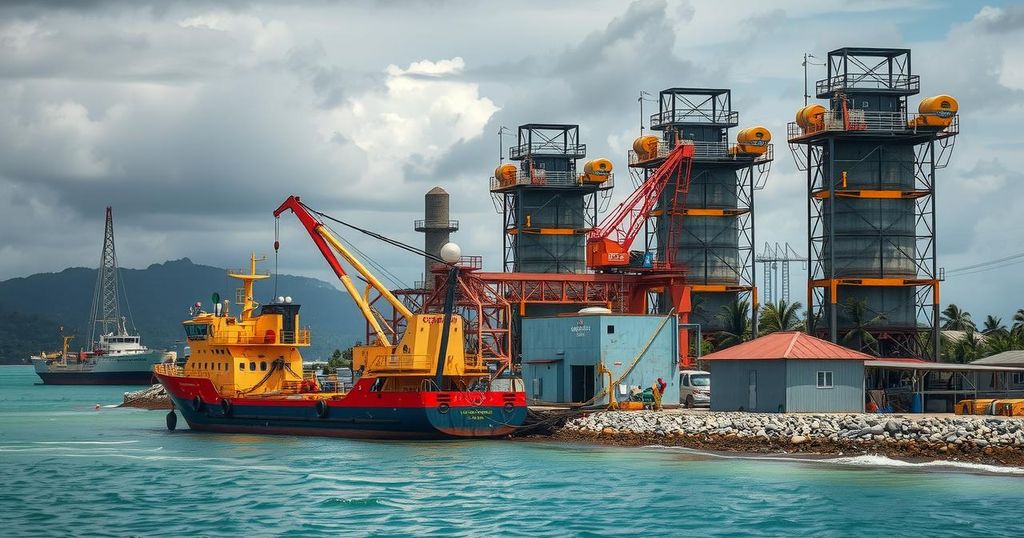World news
AFP, AFRICA, BMA, BORDER MANAGEMENT AUTHORITY, DANIEL CHAPO, ELECTORAL COMMISSION, ELECTRICIDADE DE MO, ELECTRICIDADE DE MOCAMBIQUE, FILIPE NYUSI, FR, FRELIMO, MONDLANE, MOZAMBIC, MOZAMBICAN, MOZAMBIQUE, OPPOSITION, PODEMOS, POLITICS, PROTEST, PROTESTS, SOUTH AFRICA, VENANCIO MONDLANE
Stella Nguyen
0 Comments
Mozambique Protests Disrupt Power Supply After Controversial Elections
Protests in Mozambique following disputed election results have halted operations at two thermal power plants, causing energy supply shortages. Opposition leader Venancio Mondlane has contested the results, leading to widespread demonstrations and significant unrest, with at least 90 reported deaths since October 21. The Mozambique Constitutional Council is set to confirm the election results amidst ongoing accusations of electoral fraud.
Post-election protests in Mozambique have led to the disruption of operations at two key thermoelectric power plants, the Ressano Garcia and Gigawatt facilities. Following the announcement of the ruling Frelimo party’s victory in the controversial October 9 elections, demonstrations erupted across the nation, with protesters demanding the complete cessation of energy production at these plants. In response to escalating unrest and fearing potential repercussions, Electricidade de Mocambique confirmed the suspension of operations, resulting in a significant reduction in the energy supply, equivalent to 30 percent of the demand in the southern region, which is home to approximately six million residents.
The recent protests have coincided with allegations of electoral fraud from the opposition, particularly from Venancio Mondlane, who is asserting that he received more support than reported by the electoral commission. Meanwhile, the protests have disrupted traffic around the affected power stations, leading to intermittent border closures with South Africa. The security situation in the capital city of Maputo has also deteriorated, with varying restrictions reported across different districts.
The unrest has been fueled further by Mondlane’s claims of assassination attempts following his challenge to the election results, which indicated a stark disparity between his reported vote count and that of Frelimo’s candidate, Daniel Chapo. At present, the Mozambique Constitutional Council is expected to finalize the election results before the scheduled inauguration in January, as further investigation into allegations of irregularities persists. Civil rights organizations report at least 90 fatalities in the unrest that has unfolded since October 21, illustrating the severity of the situation and the ongoing tensions plaguing the nation.
The political landscape in Mozambique has been characterized by a longstanding ruling party, Frelimo, which has held power since the country’s independence in 1975. Recent elections have been marred by accusations of electoral fraud, further intensifying the existing tensions between the ruling party and opposition groups. The Constitutional Council’s upcoming confirmation of the election results plays a crucial role in the nation’s political stability. The violence and protests occurring in the wake of the elections are indicative of a broader struggle among citizens for transparency, accountability, and democratic governance.
The post-election turmoil in Mozambique has led to significant disruptions, notably in the energy sector, and has resulted in calls for accountability following allegations of electoral fraud. The protests reflect the deep-rooted frustrations of opposition supporters and raise critical questions regarding the legitimacy of the electoral process. With continued unrest and violence, the situation necessitates urgent dialogue among stakeholders to restore stability and prevent further escalation of tensions in the nation.
Original Source: www.barrons.com




Post Comment